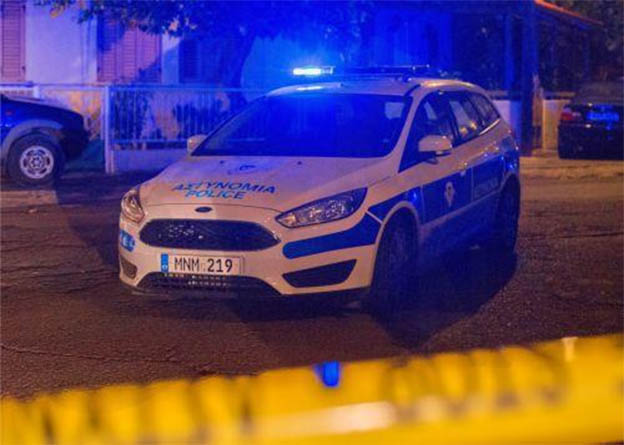Immediate and drastic measures must be taken to better equip the island’s police force, the police association (Sak) said on Monday after a spate of incidents involving youngsters erupted over the weekend.
Meanwhile the matter has been brought before regional education boards which were on Monday discussing the installation of cameras in schools to prevent the ongoing vandalism of premises.
On Friday night in Limassol, Larnaca and Nicosia a spree of ‘anti-police’ hooliganism led to dozens of arrests, after officers’ vehicles were damaged, fires were set in school buildings and rubbish bins, and Christmas decorations were trashed.
Authorities recorded at least 67 such reported incidents.
President Nikos Christodoulides sought to condemn the happenings on Sunday and called on parents to assume their responsibilities, as the violence had been perpetuated by young teenagers, between the ages of 13 and 15.
Justice Minister Marios Hartsiotis on Monday expressed great concern about rising levels of “juvenile delinquency” and the social aspect of the phenomenon.
“We saw a 13-year-old girl taken to the police station after a serious incident, and the father coming in a drunken state, demanding answers from police.”
This incident alone is indicative of the severity of the issue, he said.
The minister said he could not stress the role of parents enough, and called on all involved to address the issues at hand so “children gain a conscience and learn to respect others”.
Eradicating juvenile delinquency is something extremely difficult, he added, stipulating that when children are 12, 13 and 14 years old, parents are the ones who play the main role in shaping their character.
At the same time, the state will also do its utmost to continue and intensify actions to mitigate this problem, he added.
Asked if there are thoughts of making parents criminally liable for neglecting parental supervision, the minister said there is specific provision in the 2021 legislation that requires parents to pay damages on physical property their children caused.
“The issue of criminal liability is not a simple matter, it is multi-dimensional, we need to look at it from a legal, constitutional view, and more.”
Later on Monday, the education ministry moved to offer reassurances that “all the necessary measures are being taken, following specific protocols, actions, prevention programmes and targeted interventions at all levels”.
It added that there has been “an increase in youth violence at a global level” which is “inextricably linked to broader violence in the community”.
To solve the issue, the ministry said, “in recent years, school programmes have been implemented on a systematic basis to cover issues such as empathy, communication, conflict resolution, the prevention of bullying behaviour, emotional needs, and adolescence”.
The police association said that the causes of teenage anti-social behaviour was deep rooted, on an upward trend, and exacerbated by years of neglect by partner authorities.
“The causes [are] rooted in […] society with the competent bodies [having] observed events indifferently, expecting […] the police to deal with them, as usual,” the association said.
It took issue with the ministry of education specifically, saying that the upward trend in juvenile delinquency should have been addressed “long ago” through “social conscience and behavioural programmes in schools.”
The association described the current scene on the island with “groups of organised young hooligans committing vandalism, arson, destruction, acts of injury to the public and police officers [and] using firecrackers, flares, pistols, naval flares, torches and Molotov cocktails, during religious holidays, sports and football matches, social events, national commemorations, and the beginning and end of school terms.”
The ghettoisation of neighbourhoods was another cause of the phenomena, Sak said, often leading to clashes and street fights, for trivial reasons.
The association reiterated its longstanding demand for the establishment of permanent anti-riot teams in each district, with trained officers suitably outfitted for the task, so that they can perform their required duties effectively.
“The immediate adoption of drastic measures to […] address the dangerous increase in delinquency […] is now imperative,” Sak concluded.
Head of the Larnaca education board Yianna Nikolaou said on Monday that Friday’s incidents had been “frightening and concerning” particularly as they involved children as young as 12.
The cost of the damages was being assessed, she added, saying Livadia and Prodromos primary schools had suffered damages, including graffitied slogans and smashed windows.
Cameras are to be placed in five schools, two of which had been targeted during the episodes, and this would help with prevention, Nikolaou said, and issued a renewed call for the posting of more security guards.
Most of the schools targeted already had security guards installed, she added.
“We want to repair the damages and not relive what happened on Friday,” she said.
School guards are there to promptly inform the fire services and the police of any acts of aggression or vandalism, she said, but that this is the extent of their remit. Cameras are set to improve matters as those committing the offences will be recorded, she added.
In total, 23 people were arrested for the violence marking an ‘all cops are bastards (ACAB)’ day on Friday night.
The anti-police theme has been used as a slogan since the 1940s and is believed to have originated in the UK during worker’s union strikes.






Click here to change your cookie preferences